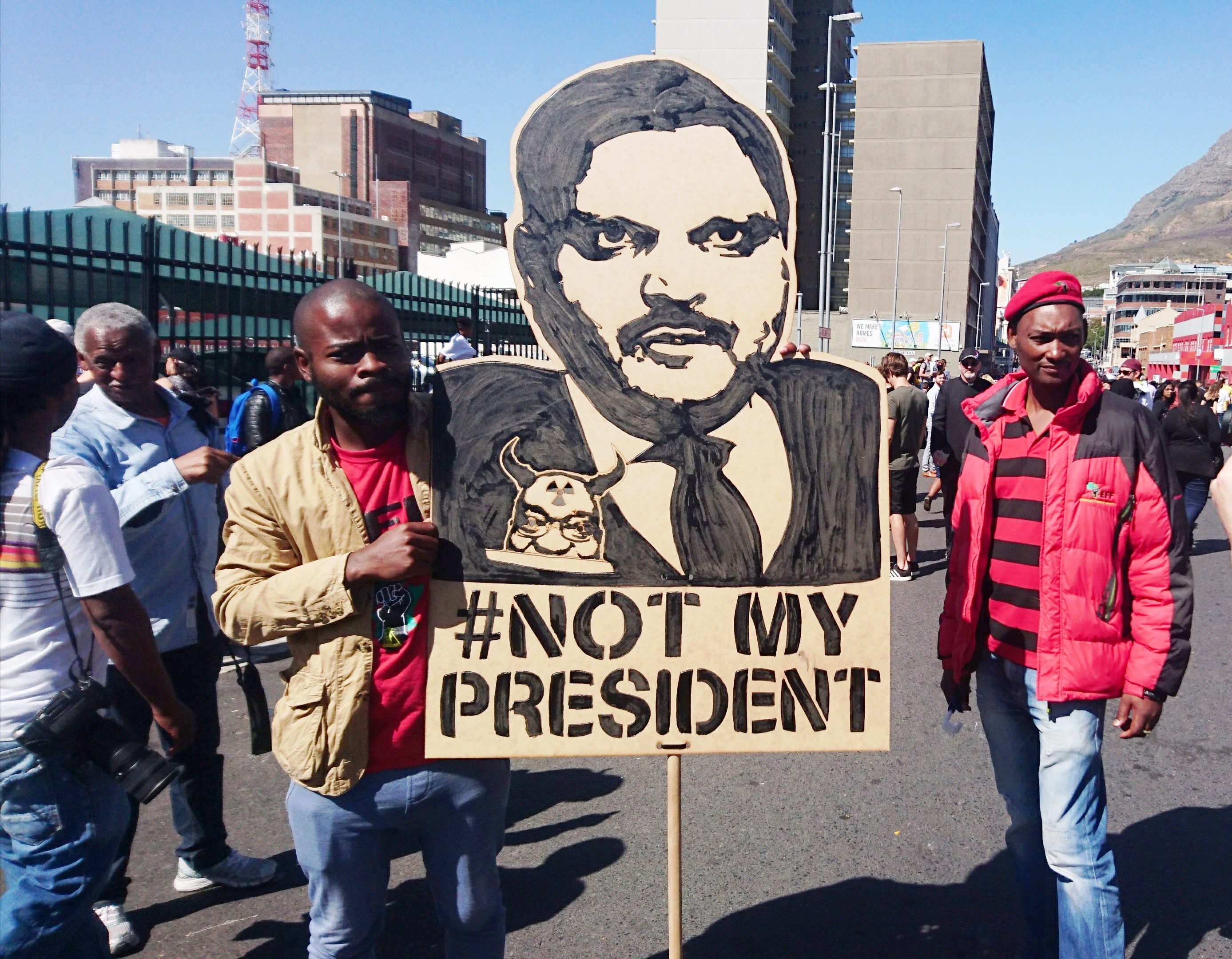|
Gupta Family
The Gupta family is a wealthy Indian-born family with business interests in South Africa, whose most notable members are brothers Ajay, Atul, and Rajesh "Tony" Gupta—as well as Atul's nephews Varun, and US-based Ashish and Amol. The family owns a business empire spanning computer equipment, media, and mining. The family became synomous with corruption in South Africa and has been sanctioned by multiple countries for their activities. In 2016, Atul Gupta became the seventh-wealthiest person in South Africa, with an estimated net worth of R10.7 billion (US$773.47 million), based on JSE-listed holdings. The family migrated from the Indian state of Uttar Pradesh to South Africa in 1993 to establish Sahara Computers. The family was based at the Sahara Estate in Saxonwold, Johannesburg, a compound comprising at least four mansions, until 2016 when they left South Africa for Dubai, United Arab Emirates. In 2022 an Interpol red notice was issued for the arrest of Atul and Rajesh G ... [...More Info...] [...Related Items...] OR: [Wikipedia] [Google] [Baidu] |
Saharanpur
Saharanpur is a city and a municipal corporation in Uttar Pradesh, India. It is also the administrative headquarters of Saharanpur district. Saharanpur city's name was given after the Saint Shah Haroon Chishti. Saharanpur is declared as one amongst the 100 Smart Cities by MOUD as a part of Smart Cities Mission of the Government of India. Geography and climate Saharanpur is located at , about south-southeast of Chandigarh, north-northeast of Delhi, north-northeast of Shamli and about south-west of Dehradun. It has an average elevation of . Saharanpur is a part of a geographical doab region. Saharanpur district join four states together Himachal Pradesh, Uttar Pradesh, Uttarakhand and Haryana. Demographics According to the 2011 Indian census, Saharanpur had a population of 705,478, 12.5% of whom were under the age of six, living in 129,856 households within the municipal corporation limits. The city is spread over an area of and with a population density of , i ... [...More Info...] [...Related Items...] OR: [Wikipedia] [Google] [Baidu] |
Interpol Red Notice
An Interpol notice is an international alert circulated by Interpol to communicate information about crimes, criminals, and threats by police in a member state (or an authorised international entity) to their counterparts around the world. The information disseminated via notices concerns individuals wanted for serious crimes, missing persons, unidentified bodies, possible threats, prison escapes, and criminals' ''modus operandi''. There are eight types of notices, seven of which are colour-coded by their function: red, blue, green, yellow, black, orange, and purple. The best-known notice is the ''red notice'' which is the "closest instrument to an international arrest warrant in use today". An eighth ''special notice'' is issued at the request of the United Nations Security Council. Notices published by Interpol are made either on the organisation's own initiative or are based on requests from national central bureaus (NCBs) of member states or authorised international entities ... [...More Info...] [...Related Items...] OR: [Wikipedia] [Google] [Baidu] |
White Monopoly Capital
White Monopoly Capital is a South African phrase used in contemporary political discourse. The origin of the term, the exact meaning of the term, and even the existence of what the term is thought to mean is disputed. The term is thought to mean everything from an oligopoly owned by a super wealthy white elite that dominates of large sectors of the economy consisting of colluding monopolies to business groups that are critical of corruption and alleged state capture within the administration of former South African president Jacob Zuma. History of the phrase Academic Christopher Malikane claims that the phrase ‘white monopoly capital’ has been used many times by South African politicians and dates back to the early 1950s during the liberation struggle. The phrase gained contemporary notoriety when it gained widespread use in 2016. Former president Jacob Zuma used the term to reject calls for him to step down as president amidst corruption allegations against him involving ... [...More Info...] [...Related Items...] OR: [Wikipedia] [Google] [Baidu] |
Racism In South Africa
Racism in South Africa can be traced back to the earliest historical accounts of European interactions with Peoples of Africa, indigenous African peoples along the coast of Southern Africa. It has existed throughout several centuries in the history of South Africa, dating back to the Dutch Empire#Southern_Africa, Dutch colonization of Southern Africa which started in 1652. Before universal suffrage was achieved in 1994, White South Africans, especially Afrikaners during the period of Apartheid, enjoyed various Social privilege, legally or socially sanctioned privileges and rights which were denied to the indigenous African peoples. Examples of systematic racism over the course of South Africa's history include forced removals, racial inequality and Racial segregation, segregation, Economic inequality, uneven resource distribution, and disenfranchisement. Racial controversies and politics remain a major phenomenon in the country. Colonial racism The region that would become mode ... [...More Info...] [...Related Items...] OR: [Wikipedia] [Google] [Baidu] |

